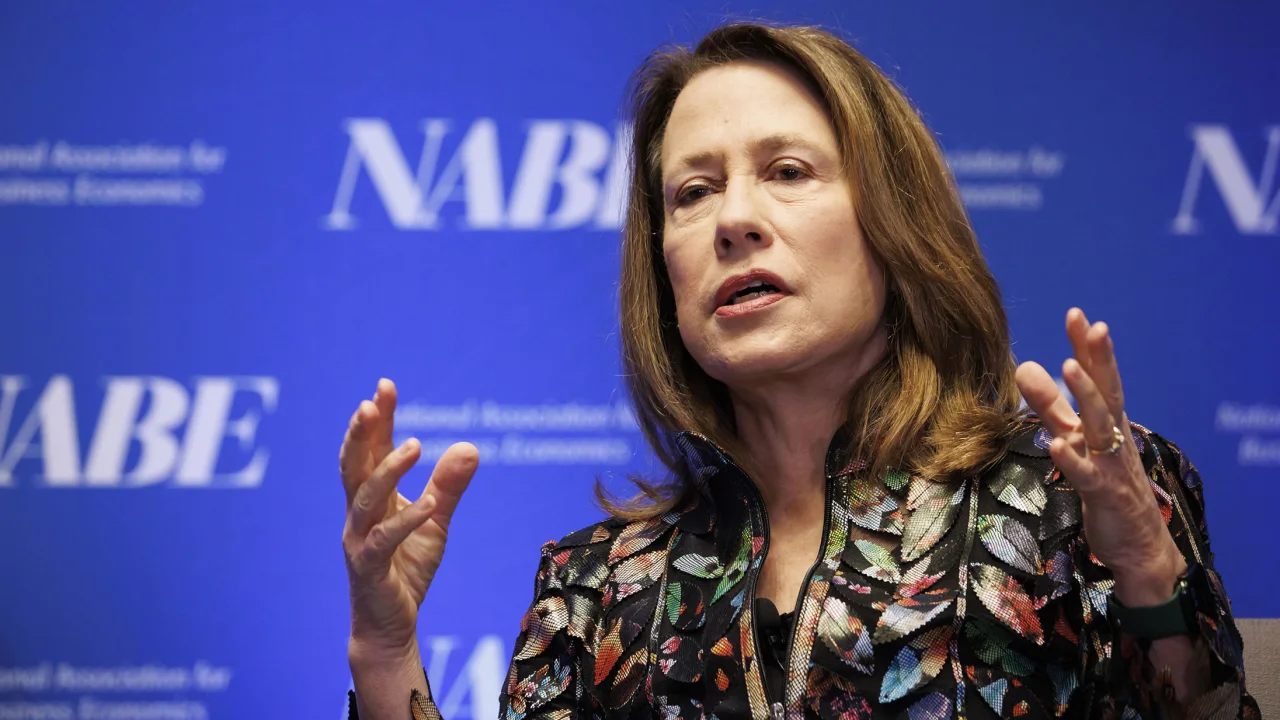
Dr. Scott Gottlieb on Finding Cures for Rare Diseases
Former FDA Commissioner Dr. Scott Gottlieb joins ‘Squawk Box’ to discuss the ongoing research and efforts at the FDA to find cures for rare diseases.…
Thought Leader: Scott Gottlieb

Sheila Bair, who guided the FDIC through the Great Recession, worries the Federal Reserve is making today’s banking crisis worse.
The Fed’s war on inflation has piled pressure on the banking system, contributing to the significant stress on the banking system. Even though First Republic this week became the third bank failure in the past seven weeks, the Fed is widely expected to deliver yet another interest rate hike on Wednesday.
“I would say hit pause,” Bair told CNN in a phone interview on Monday. “Hitting pause doesn’t mean you’re giving up the fight. It just means you’re taking a breather and assessing what you’ve accomplished so far.”
Bair, a Republican who led the FDIC from 2006 to 2011, warned it’s impossible to turn inflation around overnight – and attempting to do so will backfire.
“I know any central banker always wants to prove their inflation-fighting chops. I know they want to look tough, but at some point, they look weak,” Bair said. “I know Jerome Powell is tough on inflation. He can hit pause and still be tough on inflation.”
The bank failures could slow the economy, perhaps sharply, if they lead to a credit crunch where nervous bankers cut bank on lending. That would make mortgages, car loans, credit cards and small business loans more expensive for Main Street. Fed officials have indicated they will be mindful about this risk, though it’s hard to quantify.
Bair said trying to fix inflation overnight will create “significant ripples, increasing the risk of recession and the amount of stress in the banking system.”
Powell may not yet heed that advice from Bair, who has been calling for a pause for months.
The futures market is pricing in a 98% chance of another quarter-point interest rate hike this week, according to the CME Group’s FedWatch tool.
That’s a reflection of ongoing concern voiced by Fed officials and economists about inflation that remains well above what’s considered healthy. Rate hikes are the Fed’s main tool to getting the cost of living back down.
But higher interest rates also make it harder for banks to hold onto existing deposits and depress the value of the bonds that lenders park their cash in.
Bair argues the Fed needs “more thought” about the impact these monetary policy decisions are having on the stability of the banking system. “They seem to be siloed,” she said.
Unlike with the March failure of Silicon Valley Bank, the FDIC was able to immediately find a buyer this weekend for First Republic.
After a competitive bidding process, JPMorgan Chase agreed to pay the FDIC $10.6 billion to acquire most of the San Francisco-based bank – including all of its uninsured depositors.
But some Democrats are concerned that the First Republic sale will only worsen the Too Big To Fail problem by making America’s biggest bank even bigger.
“It was a trade-off. It stabilized the system. The downside is the banking system was already so concentrated,” Bair said.
The former FDIC chief stressed that the agency has to choose the option that will be the least expensive to its insurance fund. Big banks are typically the ones with the firepower to make the best offers.
Bair led the FDIC in 2008 when JPMorgan stepped up to buy another failing bank: Washington Mutual, still the biggest bank failure in US history.
“They bought WaMu from us and thank goodness. We had no losses,” Bair said. “It was the best of not great options.”
The recent string of bank failures has raised concern about the health of the economy and the banking system. However, Bair expressed confidence the industry will get through the storm.
“It sounds scary but in the context of the entire banking system, it’s not huge. Overall, the vast majority of banks are fine and this is something our system can handle,” Bair said.
The former FDIC chief said a “handful” of banks did not manage the spike in interest rates well. “There may be a few more,” she said.
So what should consumers do as they decide where to park their money?
Bair urged the public to be mindful of the FDIC insurance limit of $250,000 per bank per borrower.
“If you’re not a financially sophisticated person or you’re a household, stay below your FDIC insurance limit. Always. Anywhere. That’s my rule,” Bair said.
Dr. Scott Gottlieb on Finding Cures for Rare Diseases
Former FDA Commissioner Dr. Scott Gottlieb joins ‘Squawk Box’ to discuss the ongoing research and efforts at the FDA to find cures for rare diseases.…
Thought Leader: Scott Gottlieb
Peter Zeihan: U.S. Navy Seizes Russian Tanker
The US Navy just seized a shadow fleet tanker that managed to slip past the naval quarantine around Venezuela. The tanker reflagged as Russian while…
Thought Leader: Peter Zeihan
Erika Ayers Badan: Surviving Company Failure
In this episode of WORK: Unsolicited Advice, Erika talks through what it really looks like to come out of the worst month of your career…
Thought Leader: Erika Ayers Badan

